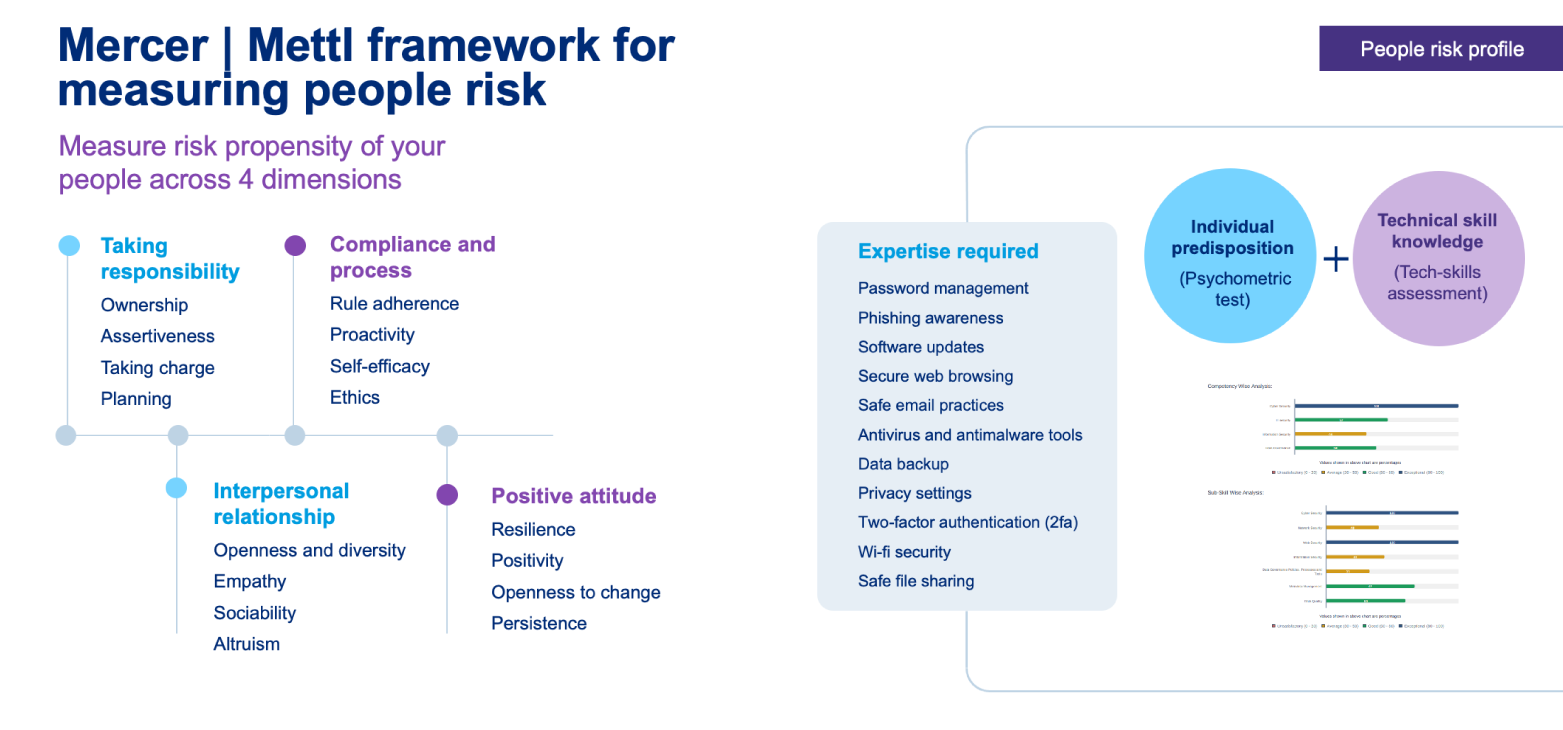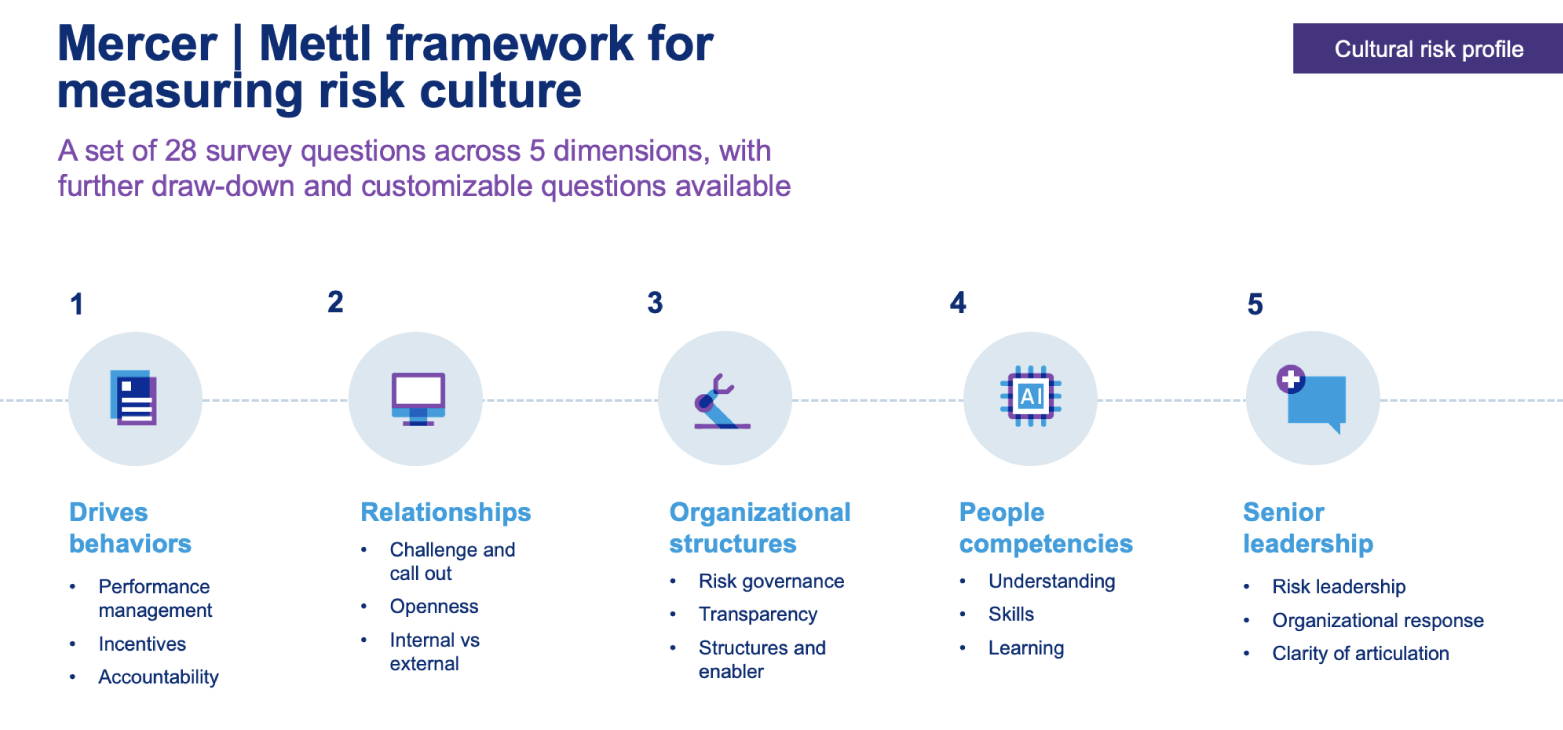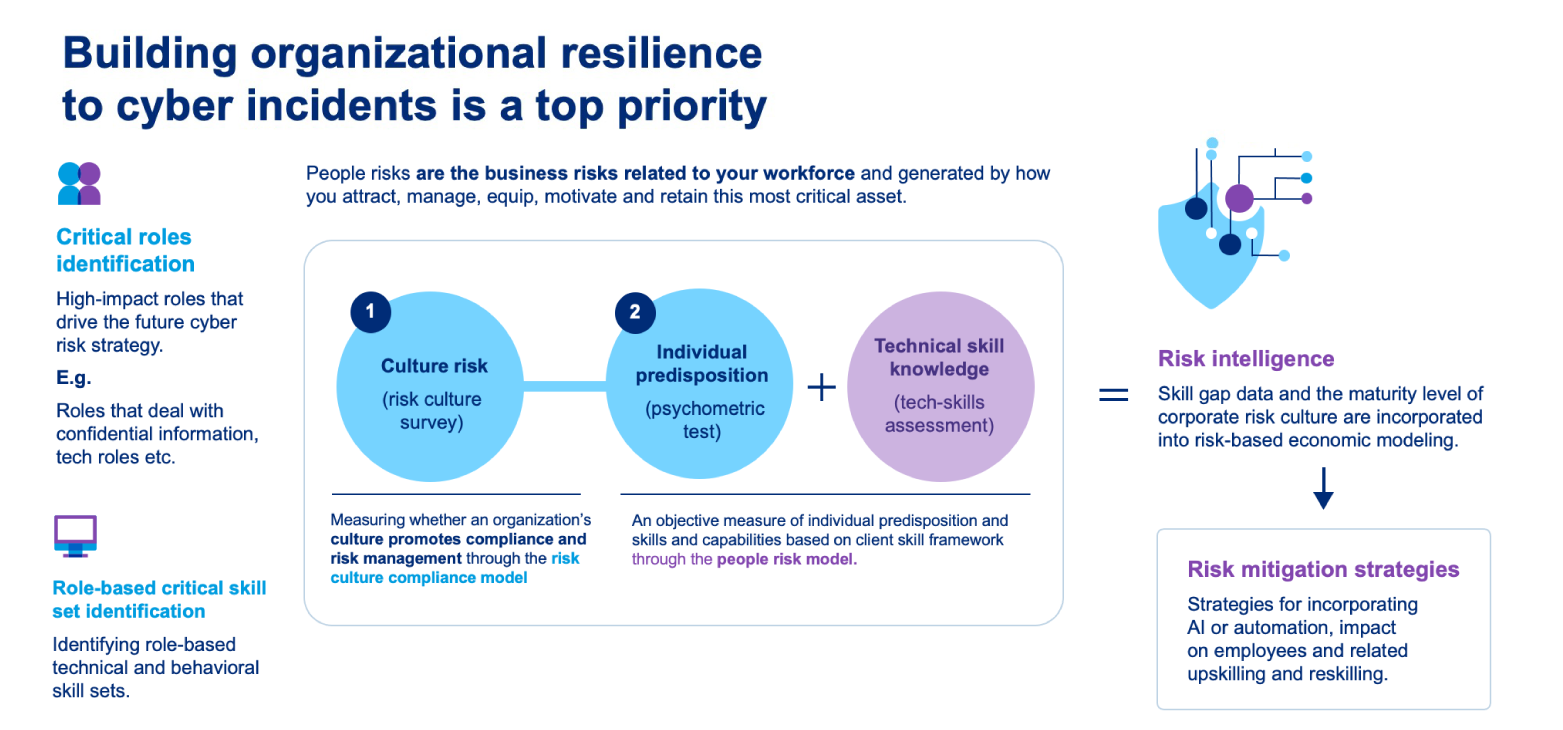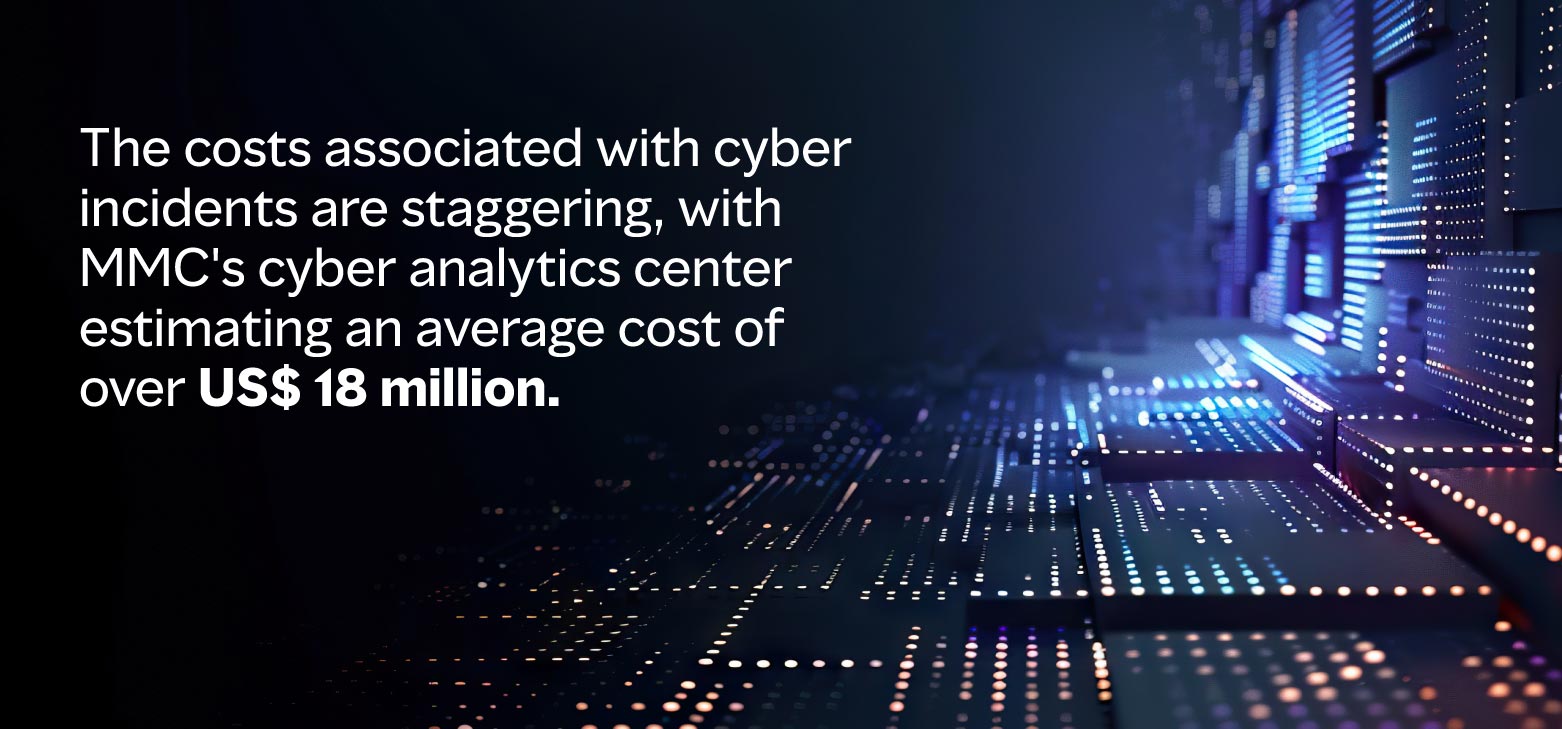Organizations frequently allocate resources to cybersecurity measures, yet they often overlook the human factor. While standard training programs may be in place, they tend to be generic and uninspiring, failing to effectively mitigate cyber incidents. To optimize ROI, organizations must adopt a targeted approach that acknowledges the need for tailored training to address the specific challenges posed by individuals. Organizations must address technological solutions and the human element by implementing customized training programs that resonate with employees’ unique needs and behaviors, like targeted marketing campaigns.

Mercer | Mettl’s approach to measuring people risk involves assessing individuals across four dimensions: compliance and process, interpersonal relationships, positive attitude, and taking responsibility. Organizations gain valuable insights into their workforce’s cybersecurity awareness and behavior by assessing individuals across these competencies. This information can be used to develop targeted training programs, address skill gaps, and foster a culture of cybersecurity consciousness within the organization.

While individual behavior drives cybersecurity consciousness, organizations often tend to overlook the significant role of culture. Culture provides valuable insights into predicting risky behaviors by offering an overview of the collective behavior within an organization. In addition to assessing individuals, Mercer | Mettl employs a risk culture model to evaluate an organization’s cybersecurity culture. This model consists of a set of 28 survey questions across five dimensions: behaviors, relationships, organizational structure, people competencies, and senior leadership.
Mercer | Mettl helps identify areas of strength and areas that require improvement by evaluating an organization’s risk culture across these dimensions, enabling organizations to develop targeted strategies to enhance their cybersecurity culture, aligning it with their overall risk management objectives.










 Behavioral Competencies
Behavioral Competencies Cognitive Competencies
Cognitive Competencies Coding Competencies
Coding Competencies Domain Competencies
Domain Competencies























Would you like to comment?